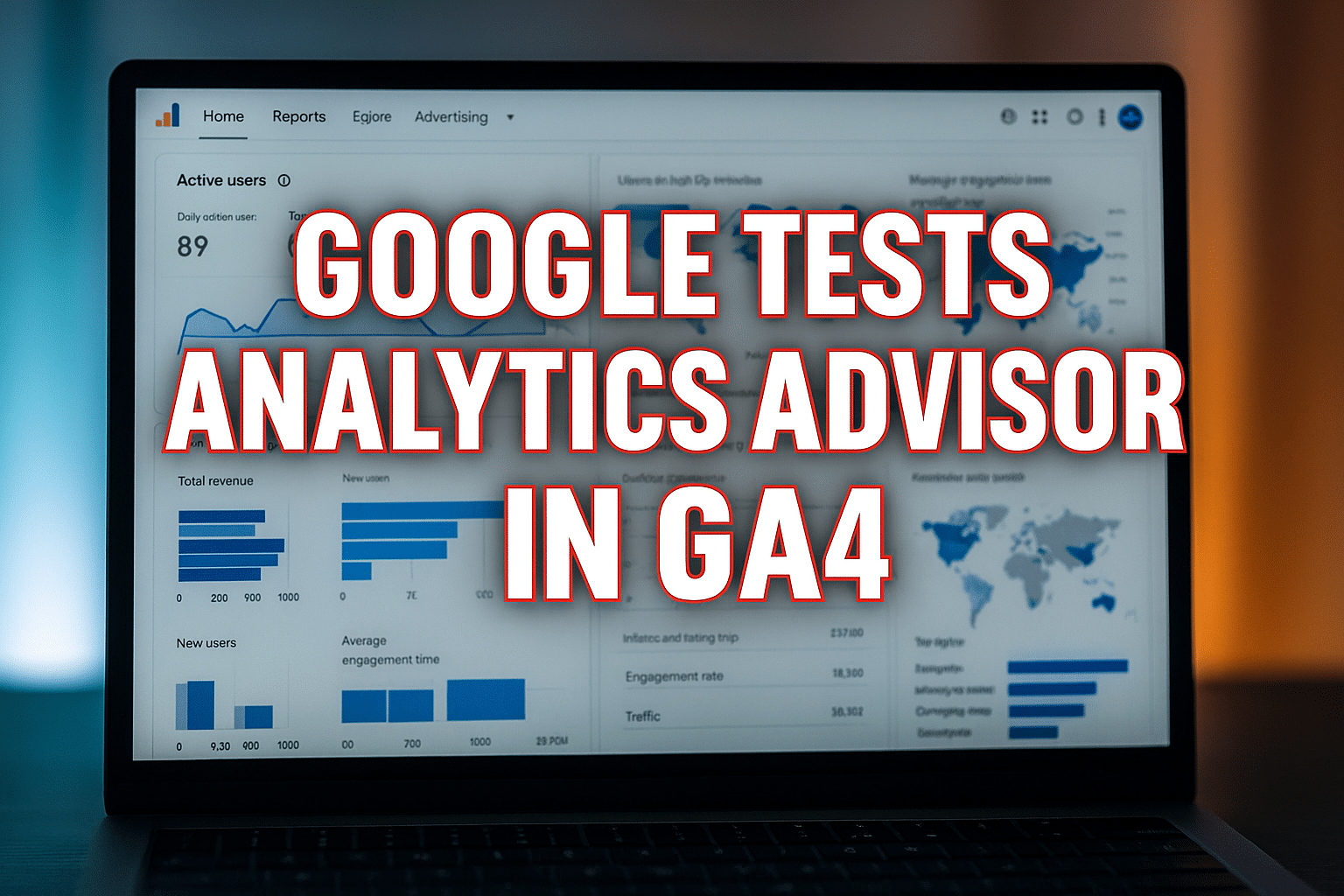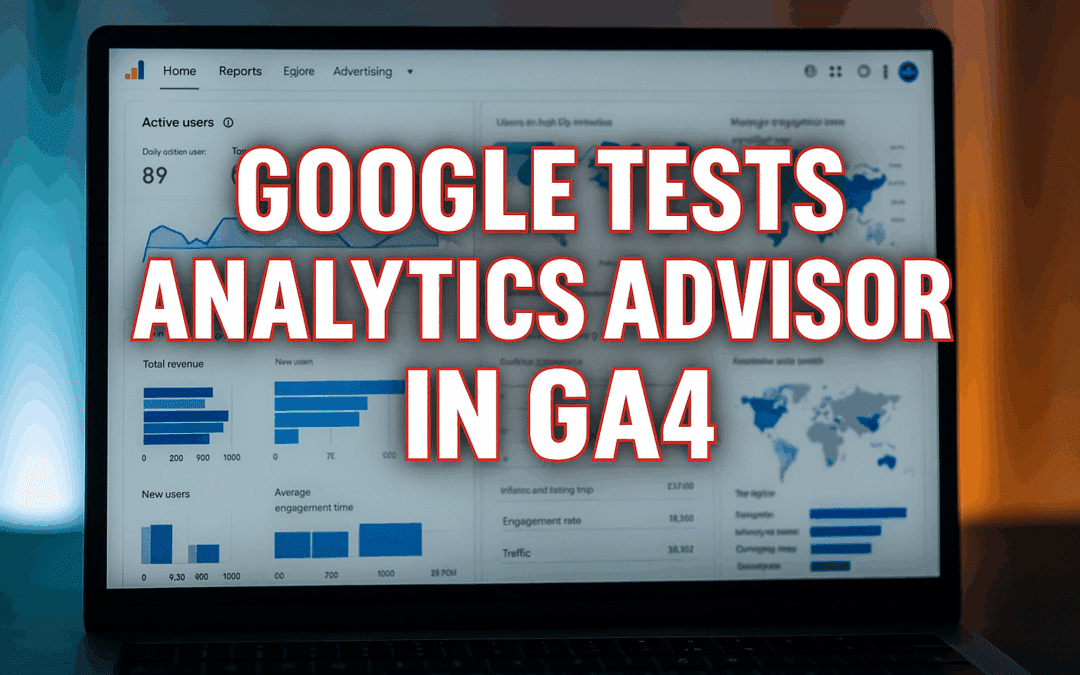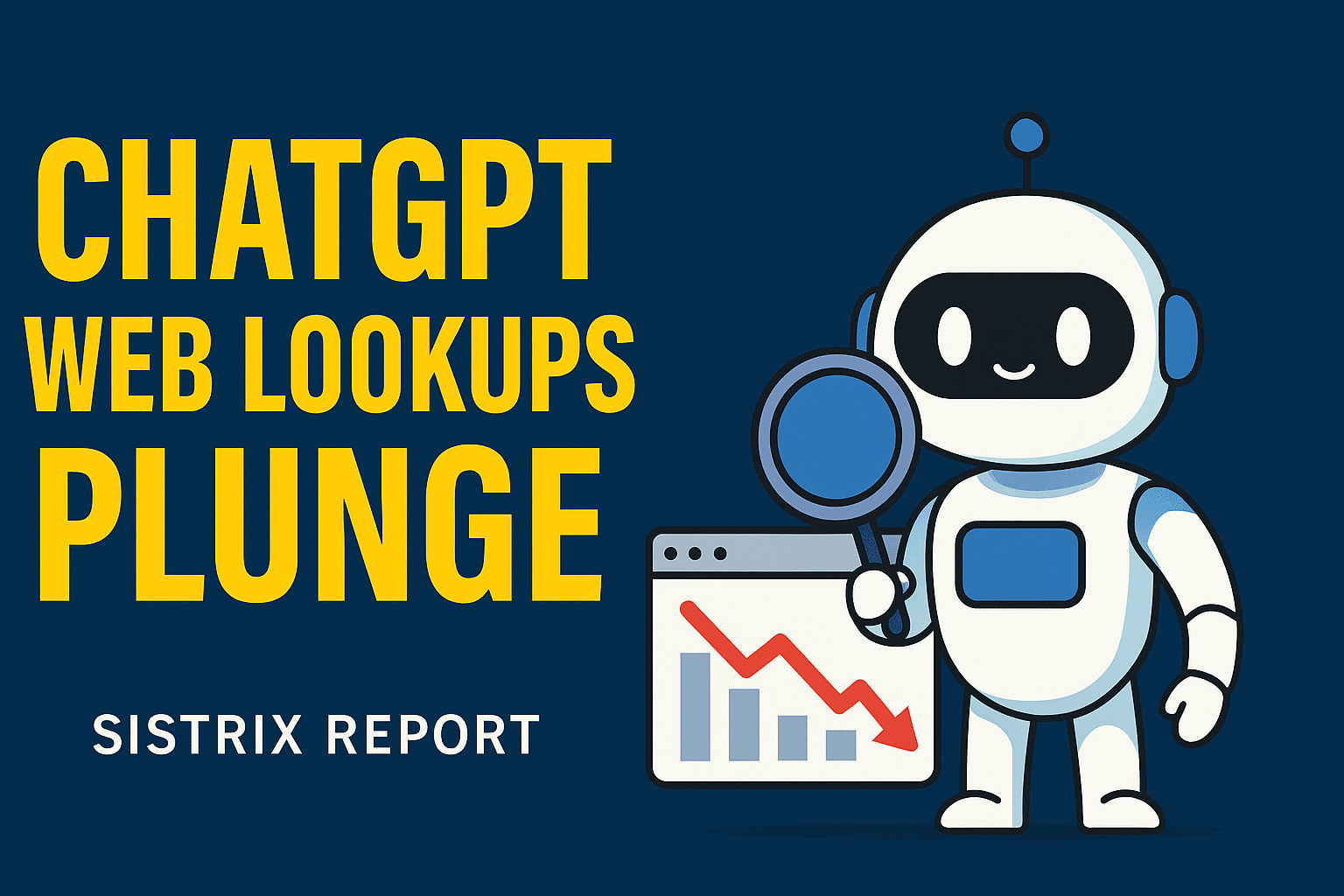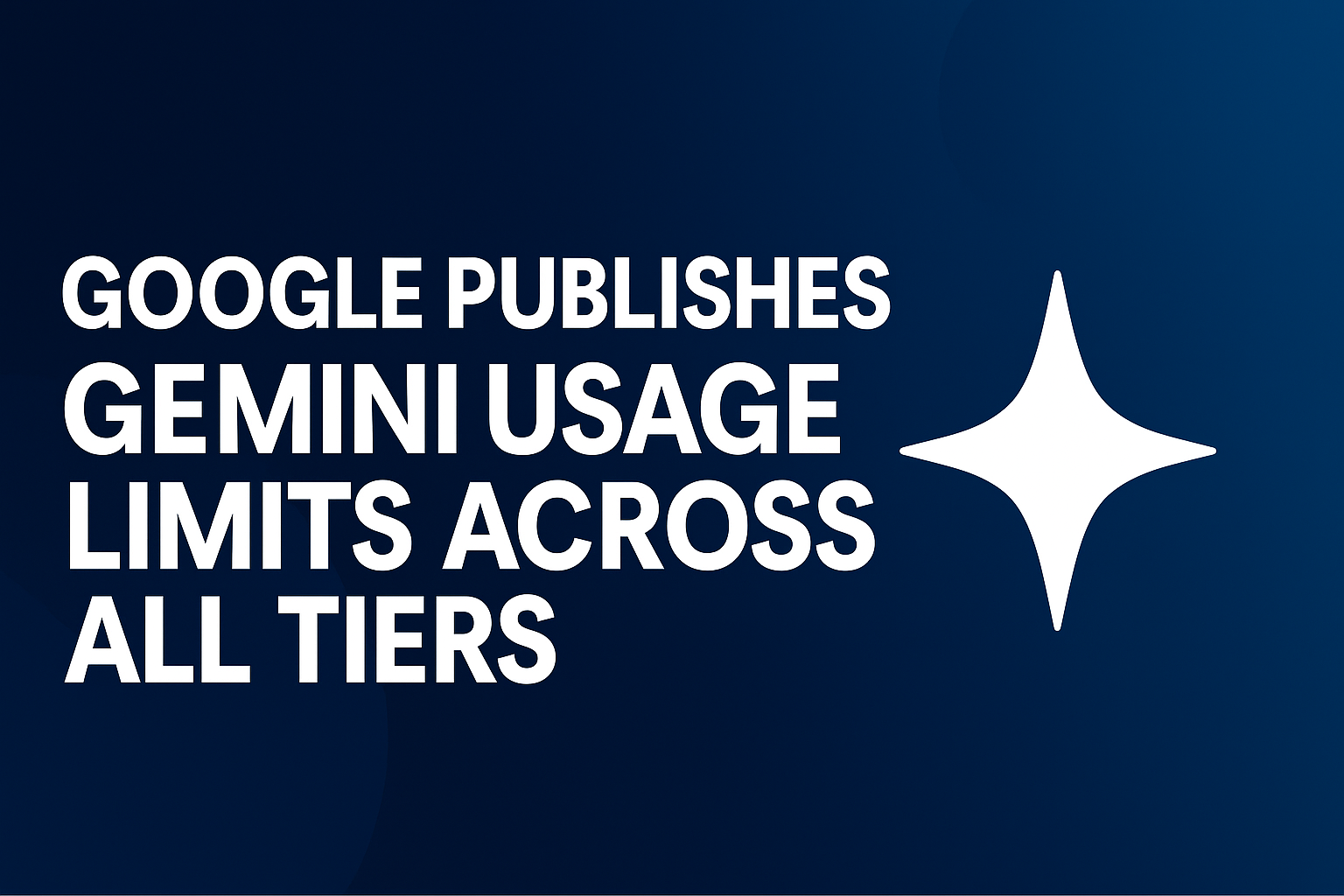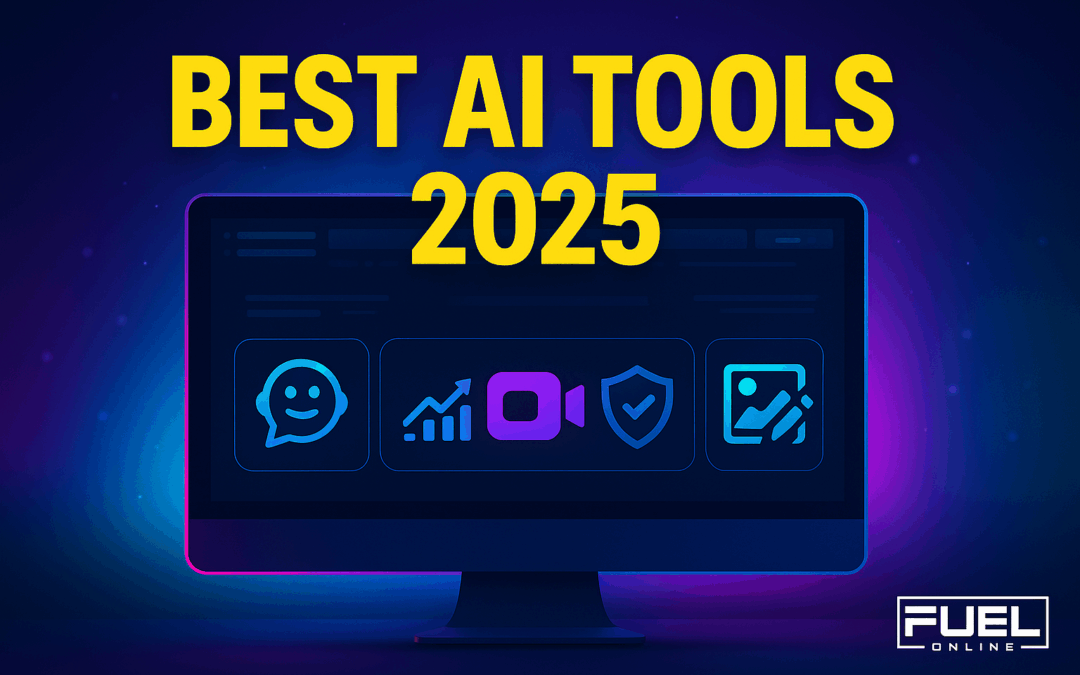Google is reportedly testing a new conversational AI interface inside Google Analytics 4 (GA4) called Analytics Advisor. Early users have begun seeing a chat-style interface that can answer data questions, point users to reports, and provide educational guidance.
This experiment aligns with Google’s broader push to integrate AI into its marketing suite, particularly Google Ads and GA4. At Google Marketing Live last year, the company previewed a data-focused assistant designed to help interpret analytics trends and offer insights proactively. The new feature appears to be an early form of that promise.
Below is an overview of what is currently known, the potential benefits and drawbacks, and a professional perspective on what this means for agencies, marketers, and data teams.
What We Know So Far
Reports from analytics experts show that Analytics Advisor appears within certain GA4 accounts as a conversational panel. The tool can answer natural language questions, generate quick visualizations, and guide users toward the most relevant reports.
Its current behavior suggests that it pulls directly from a user’s existing GA4 data to create context-aware responses. The assistant may also provide brief explanations of how it derived an answer, which could help users build trust in the system.
Google has not yet provided formal documentation, rollout dates, or regional details. For now, this appears to be a limited experimental release.
Why This Matters
Faster Insights, Less Friction
GA4 has been criticized for its steep learning curve and less intuitive navigation. For many users, simply finding a basic metric can take several clicks. Analytics Advisor could change that dynamic by allowing natural language questions such as, “Which campaign generated the highest conversion rate last quarter?” and producing direct answers or charts.
This would remove layers of manual report-building, making it easier for both marketers and clients to act on their data in real time.
Balancing Simplicity and Accuracy
A conversational AI that summarizes analytics is powerful, but it also introduces risk. Non-technical users might accept surface-level insights without understanding underlying assumptions, anomalies, or data sampling issues. The feature’s usefulness will depend on whether it gives enough context and shows how it arrived at its conclusions.
Transparency will be critical. If Analytics Advisor explains its logic, it can be a legitimate time-saver rather than a black box that oversimplifies complex metrics.
Advantage for Early Adopters
Agencies and data-driven businesses that adopt this feature early can test real use cases and discover its quirks before competitors do. By training staff and clients to interpret results correctly, they can integrate AI-generated analytics safely into existing workflows.
Key Concerns and What to Watch
The primary questions surrounding Analytics Advisor include:
- Data Privacy: How does Google handle the data it processes through this tool? Will queries feed into broader AI model training?
- Accuracy: AI tools are known to misread or “hallucinate” correlations. Agencies must confirm results manually before taking action.
- Compatibility: It is unclear whether custom dimensions, event-scoped metrics, or data imports will be recognized correctly.
- Access: There is no clear indication of which accounts will receive early access or whether it will be a premium feature.
Treat this as an experimental assistant that augments, not replaces, professional data analysis.
Recommendations for Marketing Teams and Agencies
- Check for availability regularly. Keep an eye on your GA4 dashboards for any new chat interface or notification related to Analytics Advisor.
- Test in a sandbox environment first. Avoid experimenting in production properties until you understand how the tool behaves with your specific tracking setup.
- Validate every output. Compare results from Analytics Advisor with manual reports to identify discrepancies.
- Develop prompt templates. Create standardized question formats such as “Show performance by campaign for the past 30 days” or “Identify landing pages with the highest bounce rate.”
- Train your teams. Make sure staff know how to interpret the AI’s explanations, and document where it tends to be accurate or misleading.
- Keep a feedback log. Track your interactions with the tool and submit feedback to Google when it produces inaccurate insights.
By treating Analytics Advisor as a controlled experiment rather than a replacement for human analysis, agencies can stay ahead of the curve without sacrificing data accuracy.
Expert Perspective from Fuel Online
From an agency standpoint, this move was inevitable. Google understands that the average GA4 user struggles to extract meaningful insights from the platform. By embedding an AI-driven advisor, Google is positioning Analytics as a true decision-support system rather than a passive reporting tool.
The key question is whether it will maintain data transparency. Many AI tools simplify answers at the cost of precision. In analytics, that is unacceptable. Agencies need context, segmentation detail, and attribution clarity before making decisions.
If executed well, Analytics Advisor could save teams hours of manual reporting time each week. However, if it becomes a one-click “trust me” feature, it could actually widen the gap between casual users and professionals who understand the data.
For Fuel Online’s clients and partners, this reinforces a broader truth: AI should amplify human intelligence, not replace it. Tools like Analytics Advisor are best used as accelerators for experienced marketers who already understand how to validate what they see.
Analytics Advisor could become one of GA4’s most transformative updates. It has the potential to remove technical barriers and make data accessible to a broader audience. Yet, it must remain transparent, explainable, and reliable to gain long-term trust from agencies and enterprise marketers.
For now, treat it as an early look at the future of analytics: conversational, intelligent, and integrated. The agencies that learn to collaborate with this technology—while still validating every number—will be the ones who extract the real value.

